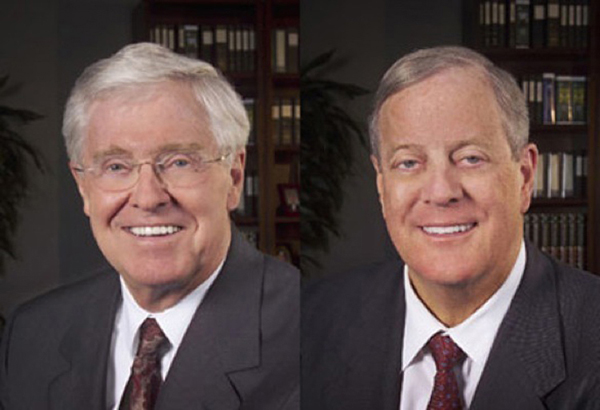 The grassroots pressure group Americans for Prosperity (AFP), that actively fought health care reform, boasts "our citizen activists" are "the heart and soul" of the organization. So AFP wants the public and the media to believe. But an exhaustive report in the August 30, 2010 issue of The New Yorker magazine, shows that the heart and soul behind AFP are really the oil billionaire brothers David and Charles Koch of Koch Industries, whose privately-owned oil enterprise has made them among the richest men in America. In addition to petroleum interests, the Kochs also own a host of familiar products like Brawny paper towels, Dixie cups, Georgia-Pacific lumber, Stainmaster carpet and Lycra. Their massive combined wealth makes them the third richest people in the country, behind only Bill Gates and Warren Buffett, who are better known to the public. The Kochs have intentionally obscured their involvement on the American political scene through the creation of an elaborate network of front groups, think tanks, foundations and astroturf organizations, but the public is quickly getting to know the Koch brothers better. Given their extreme wealth and pervasive efforts to manipulate the American public, it is a name everyone should get to know very, very well.
The grassroots pressure group Americans for Prosperity (AFP), that actively fought health care reform, boasts "our citizen activists" are "the heart and soul" of the organization. So AFP wants the public and the media to believe. But an exhaustive report in the August 30, 2010 issue of The New Yorker magazine, shows that the heart and soul behind AFP are really the oil billionaire brothers David and Charles Koch of Koch Industries, whose privately-owned oil enterprise has made them among the richest men in America. In addition to petroleum interests, the Kochs also own a host of familiar products like Brawny paper towels, Dixie cups, Georgia-Pacific lumber, Stainmaster carpet and Lycra. Their massive combined wealth makes them the third richest people in the country, behind only Bill Gates and Warren Buffett, who are better known to the public. The Kochs have intentionally obscured their involvement on the American political scene through the creation of an elaborate network of front groups, think tanks, foundations and astroturf organizations, but the public is quickly getting to know the Koch brothers better. Given their extreme wealth and pervasive efforts to manipulate the American public, it is a name everyone should get to know very, very well.
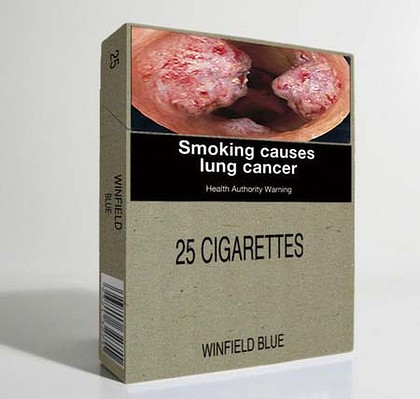 Earlier this year, Australia became the first country to announce plans to make tobacco companies use plain, uncolored cigarette packs with few or no logos that bear only graphic health warnings.
Earlier this year, Australia became the first country to announce plans to make tobacco companies use plain, uncolored cigarette packs with few or no logos that bear only graphic health warnings.
 In
In  The Internet-based market research agency
The Internet-based market research agency 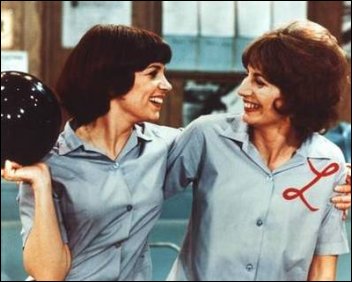 For many Americans, Laverne and Shirley remain the enduring icons of the city of Milwaukee.
For many Americans, Laverne and Shirley remain the enduring icons of the city of Milwaukee. 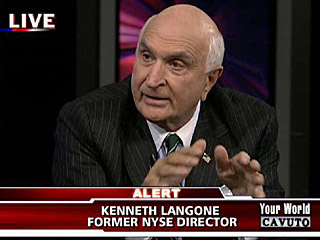 A new right-wing group, "
A new right-wing group, "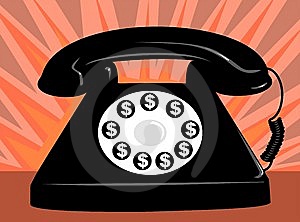 Time Warner Cable has figured how to make customers pay more for a "service" that consists of doing absolutely nothing: it doubled its fee to not print customers' names in the phone book. Time Warner now charges $1.99 a month, or almost $24 a year, for an unlisted number.
Time Warner Cable has figured how to make customers pay more for a "service" that consists of doing absolutely nothing: it doubled its fee to not print customers' names in the phone book. Time Warner now charges $1.99 a month, or almost $24 a year, for an unlisted number. The
The  A new
A new 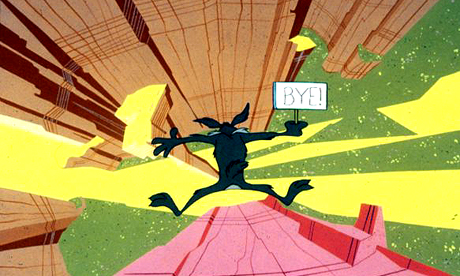 The PR debacles of
The PR debacles of